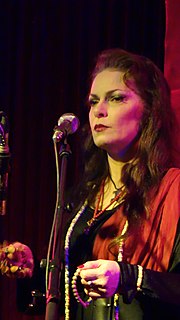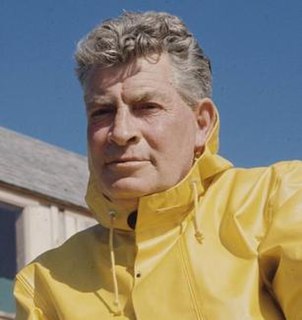A Quote by Ralph Waldo Emerson
A friend, therefore, is a sort of paradox in nature. I who alone am, I who see nothing in nature whose existence I can affirm with equal evidence to my own, behold now the semblance of my being, in all its height, variety, and curiosity, reiterated in a foreign form; so that a friend may well be reckoned the masterpiece of nature.
Related Quotes
After decades of faithful study, ecologists have begun to fathom hidden likenesses among many interwoven systems. ...a canon of nature's laws, strategies, and principles...
Nature runs on sunlight.
Nature uses only the energy it needs.
Nature fits form to function.
Nature recycles everything.
Nature rewards cooperation.
Nature banks on diversity.
Nature demands local expertise.
Nature curbs excesses from within.
Nature taps the power of limits.
For us, mind has nature for its premise, being nature's truth and for that reason its absolute prius. In this truth nature has vanished, and mind has resulted as the idea arrived at being-for-itself, the object of which, as well as the subject, is the concept. This identity is absolute negativity, for whereas in nature the concept has its perfect external objectivity, this its alienation has been superseded, and in this alienation the concept has become identical with itself. But it is this identity therefore, only in being a return out of nature.
There is nothing in the nature of a miracle that should render it incredible:;: its credibility depends upon the nature of the evidence by which it is supported. An event of extreme probability will not necessarily command our belief unless upon a sufficiency of proof; and so an event which we may regard as highly improbable may command our belief if it is sustained by sufficient evidence. So that the credibility or incredibility of an event does not rest upon the nature of the event itself, but depends upon the nature and sufficiency of the proof which sustains it.
You may command Nature to the extent only in which you are willing to obey her. You cannot intelligently obey that which you do not comprehend. Therefore I also say, ask of Nature that you may be one with her and she will whisper her secrets to you to the extent in which you are prepared to listen. Seek to be alone much to commune with Nature and be thus inspired by her mighty whisperings within your consciousness. Nature is a most jealous god, for she will not whisper her inspiring revelations to you unless you are absolutely alone with her.
All that is limited by form, semblance, sound, color is called object. Among them all, man alone is more than an object. Though, like objects, he has form and semblance, He is not limited to form. He is more. He can attain to formlessness. When he is beyond form and semblance, beyond "this" and "that," where is the comparison with another object? Where is the conflict? What can stand in his way? He will rest in his eternal place which is no-place. He will be hidden in his own unfathomable secret. His nature sinks to its root in the One. His vitality, his power hide in secret Tao.
There is therefore no reason to put a limit to evolutionary possibility by taking our present organization or status of existence as final. The animal is a laboratory in which Nature has worked out man; man may very well be a laboratory in which she wills to work out superman, to disclose the soul as a divine being, to evolve a divine nature.
A unifying factor between the different traditions and lineages of Tantra, is that it is feminine in nature. It acknowledges the feminine as the basis from which all the practices spring. Therefore, Tantra is by its nature, the understanding that all phenomenal existence, the universe, or cosmos, that we experience is feminine in nature.
My love affair with nature is so deep that I am not satisfied with being a mere onlooker, or nature tourist. I crave a more real and meaningful relationship. The spicy teas and tasty delicacies I prepare from wild ingredients are the bread and wine in which I have communion and fellowship with nature, and with the Author of that nature.
Nature. As the word is now commonly used it excludes nature's most interesting productions-the works of man. Nature is usually taken to mean mountains, rivers, clouds and undomesticated animals and plants. I am not indifferent to this half of nature, but it interests me much less than the other half.
Nature is purposeless. Nature simply is. We may find nature beautiful or terrible, but those feelings are human constructions. Such utter and complete mindlessness is hard for us to accept. We feel such a strong connection to nature. But the relationship between nature and us is one-sided. There is no reciprocity. There is no mind on the other side of the wall.








































